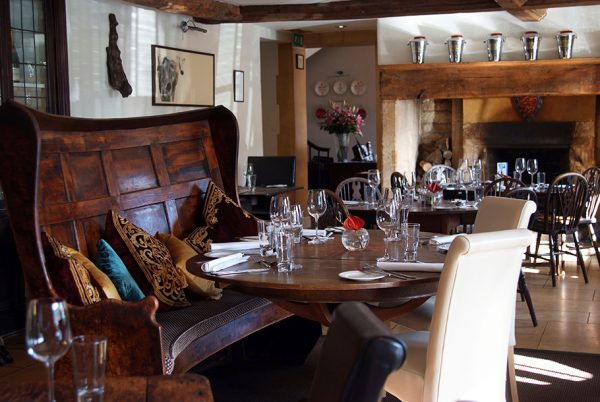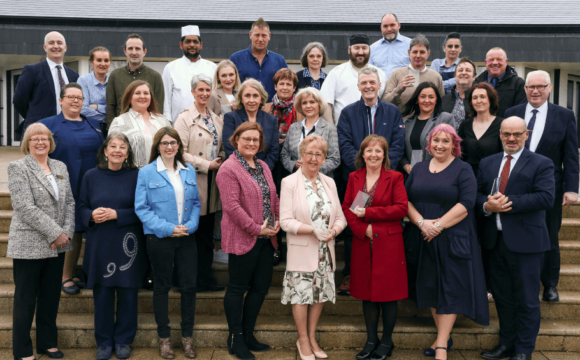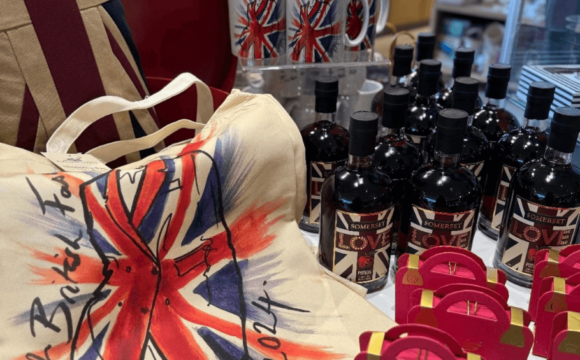With beautiful natural landscape, including rolling hills, sweeping meadows, and vast swathes of grassland in which are nestled thatched cottages in pretty medieval villages, ancient churches and grand stately homes, the Cotswolds holds a special place in English rural history. The name itself is a catch-all label applied to a mostly pastoral area of south central England, touching six different counties, but largely spread across Gloucestershire and Oxfordshire and an Area of Outstanding Natural Beauty.
For visitors from Northern Ireland, Birmingham Airport is a great starting point. Simply hire a car, drive south and, in no time at all, all the attractions of the Cotwolds begin to unfold before you.
Hardy travellers might like to consider the 100-odd mile Cotswold Way walking trail, from Chipping Campden in the north to the magnificent Georgian city of Bath in the south.
I intended to see as much of the Cotswolds during my short stay, but decided that four wheels, rather than two legs, would be the most efficient way of doing it. Chipping Campden seemed like the best starting point, having been described by the historian G M Trevelyan as having “the most beautiful village street now left in the island.”
Indeed, Chipping Campden’s elegant, terraced High Street, with its mish-mash of honey-stone buildings dating between the 14th and 17th centuries is a picture postcard of a place, and is firmly at the top of the list of the Cotswolds’ must-see attractions.
Once an important market town in the area, Chipping Campden’s iconic Market Hall, built in 1627, still stands beside the High Street’s town square. Throngs of tourists have replaced the once bustling scene of sheep and wool trading which continued up until the 1930s.
Also located on the High Street’s town square is the Kings Hotel, where I would begin my Cotswolds adventure.
Guests can stay either in the magnificent three-storey main building, or in a room in the sympathetically-restored cottage, set in the gardens at the back of the property and my sizeable attic suite there was complete with every modern convenience, juxtaposed against the ancient, exposed roof timbers and stonework.
In addition to its excellent accommodation, the Kings Hotel boasts two fine restaurants, the two AA Rosettes Award-winning Jackrabbit, and the less-formal Brasserie Bar.
Under the direction of head chef Greg Newman, Jackrabbit’s menus feature fresh and seasonal produce sourced, as much as possible, from surrounding farms and markets.
I began with charred Everleigh Farm asparagus, served with Berkswell custard, preserved lemon and wild garlic, while my main course choices included rump & shoulder of Warwickshire lamb, or loin of Gloucester Old Spot pig.
The pork, as always, won. Following an extremely sound sleep, more local pork in the form of sausages and bacon complimented a hearty breakfast, setting me up for a long day exploring more of the many attractions of the beautiful and historic Cotswolds.
FACT FILE:
Andrea McVeigh was hosted by The Kings Hotel, part of the Eden Hotel Collection – a privately-owned portfolio of nine beautiful properties in the UK. Set in an 18th-century Cotswold-stone townhouse, this characterful hotel has a wonderful location in the heart of the picturesque market town of Chipping Campden, 18 delightful bedrooms and excellent seasonal cuisine. Stay overnight from £109 per room (two sharing), including full English breakfast. Call The Kings Hotel on 01386 840 256 (kingscampden.co.uk).
Click to view article images:

















